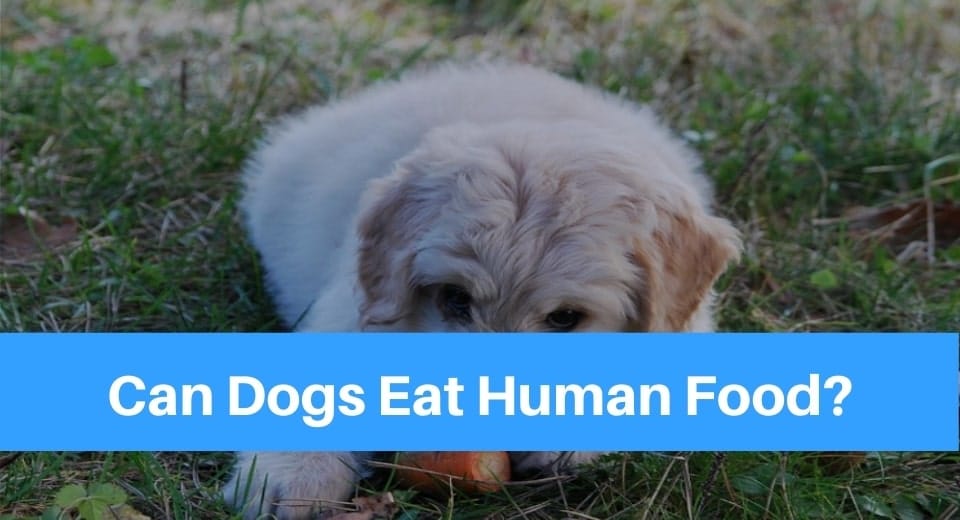Dog owners enjoy sharing food with their dogs, although they know it is not always safe. If certain food is good for people it doesn’t mean that this food is always safe for dogs.
If you want to supplement your doggie diet, you should know which foods are good for your dog and which are not.
There are lists of people foods that are approved for dogs and foods that should never be given to them.
Dog-Approved People Foods
Chicken: Cooked unseasoned chicken can be a good addition to your dog’s diet. Chicken provides extra protein and it is a good replacement for dog food.
Salmon: Salmon is also a food which can be added to a dog’s diet. Salmon is rich in omega 3 fatty acids and it helps your dog to have shine and healthy coat.
Oatmeal: Cooked oatmeal without sugar is great addition to your dog’s regular food. Oatmeal is especially good for dogs with gastrointestinal problems. Also, oatmeal is a great source of fiber and it is safe for dogs with wheat allergies.
Peanut Butter: A tablespoon of unsalted peanut butter can be an occasional treat for your dog. Peanut butter is rich in protein and healthy fats.
Yogurt: Plain yogurt is ideal for dogs who suffer from digestion problems. It is important to give your dog yogurt which doesn’t contain sugar or artificial sweeteners.
Broccoli: Broccoli is a vegetable rich in vitamins and it can be a great occasional treat for your dog. But, broccoli should not make up more than 10% of a dog’s diet, in order to avoid gastrointestinal problems.
Green Beans: Green beans are rich in vitamins and iron and they are also low in calories. But, you should feed your dog only fresh or canned unsalted beans.
Pumpkin: Pumpkin is loaded with vitamin A and you can give it your dog raw or in a can. Pumpkin is also recommendable if your dog has any problems with digestion.
Carrots: Carrots are rich in fiber and vitamins and low in calories. Carrots can be a great snack for your dog and they can have many health benefits. Also, carrots are good for dogs’ teeth. It is best to cook carrots or dehydrate them and then to chop carrots into small pieces.
Apple: Apple slices can clean dog’s teeth and freshen dog’s breath. Also, apples are rich in fiber and vitamins A and C. But, it is important to take out the seeds and the core before feeding apple to your dog.
Blueberries: Frozen blueberries can be a great summer snack for your dog that will cool him down.
Scrambled Eggs: Scrambled eggs can be a healthy addition to dog’s diet, but they should not substitute dog food. Scrambled eggs are especially good if your dog needs a protein boost.
Cottage Cheese: Cottage cheese is rich in protein and calcium and it can be a good addition to dog’s diet. But, you should avoid giving cottage cheese to your dog if he has problems with digesting dairy products.
Foods Not Approved For Dogs
Chocolate: Unfortunately, chocolate is on the list of foods which are toxic to dogs. Chocolate contains methylxanthines, stimulants which can lead to many health issues. If your dog consumes large amounts of chocolate, it can cause diarrhea, vomiting, seizures, heart issues and even death.
Onions: You should not give onions to your dog because they can damage red blood cells in your dog and make him very sick.
Grapes and Raisins: Grapes and raisins are known as toxic foods for dogs. They can lead to kidney failure and even death.
Avocado: Avocado is also toxic to dogs. Avocado fruit, seeds, leaves and also avocado bark contain persin, a toxin that cause breathing problems and upset stomach.
Alcohol: You should not give alcohol to your dog, because it can be very toxic. Alcohol can cause seizure, vomiting and death.
Before giving your dog human foods, you have to know that every dog is unique and different. We recommend you to feed your dog small amounts of these foods, just to see the reaction of the dog. It’s also responsible to know that some are lactose intolerant, so giving milk to dogs isn’t always advisable. It is important to call a veterinarian if your dog has any reactions to certain foods.

